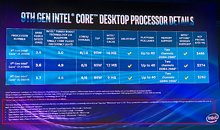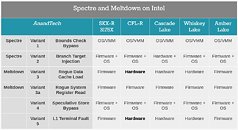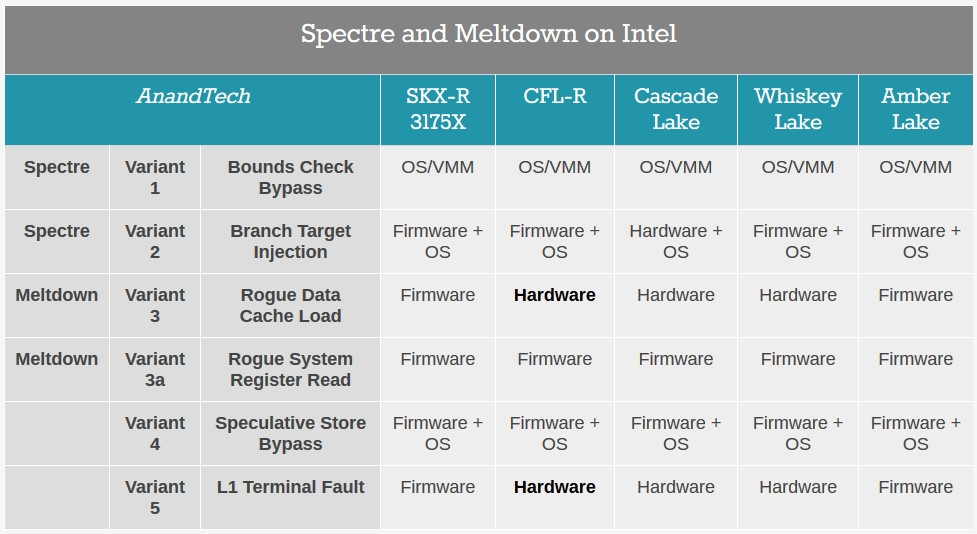The new 9th generation Intel Core processors arrived yesterday with a series of improvements made to entice gamers and content creators. These improvements, however, join others that go beyond pure performance. Intel has introduced several architectural changes to fix the infamous Spectre & Meltdown vulnerabilities, and the new processors mitigate most of the variants of these attacks through a combination of hardware, firmware and OS fixes.
The big changes come to two of the six variants of those vulnerabilities. In both "Rogue Data Cache Load" (Meltdown, variant 3) and "L1 Terminal Fault" (Meltdown, Variant 5) vulnerabilities these new processors have hardware fixes that are new and not present on the rest of the current portfolio of Intel chips. This includes the new Xeon W-3175X (Core-X Skylake-X Refresh), which still depend on firmware fixes to mitigate those problems.


The "Bounds Check Bypass" (Spectre's Variant 1) will still need to be mitigated by software for the time being, due to the need for deeper architectural changes. With that said, the current hardware fixes that have been implemented improve not only security, but also the performance of these chips. This is thanks to said hardware fixes having practically no impact on performance according to Intel, though we'll have to confirm this on future reviews of the new desktop processors.
View at TechPowerUp Main Site
The big changes come to two of the six variants of those vulnerabilities. In both "Rogue Data Cache Load" (Meltdown, variant 3) and "L1 Terminal Fault" (Meltdown, Variant 5) vulnerabilities these new processors have hardware fixes that are new and not present on the rest of the current portfolio of Intel chips. This includes the new Xeon W-3175X (Core-X Skylake-X Refresh), which still depend on firmware fixes to mitigate those problems.


The "Bounds Check Bypass" (Spectre's Variant 1) will still need to be mitigated by software for the time being, due to the need for deeper architectural changes. With that said, the current hardware fixes that have been implemented improve not only security, but also the performance of these chips. This is thanks to said hardware fixes having practically no impact on performance according to Intel, though we'll have to confirm this on future reviews of the new desktop processors.
View at TechPowerUp Main Site







